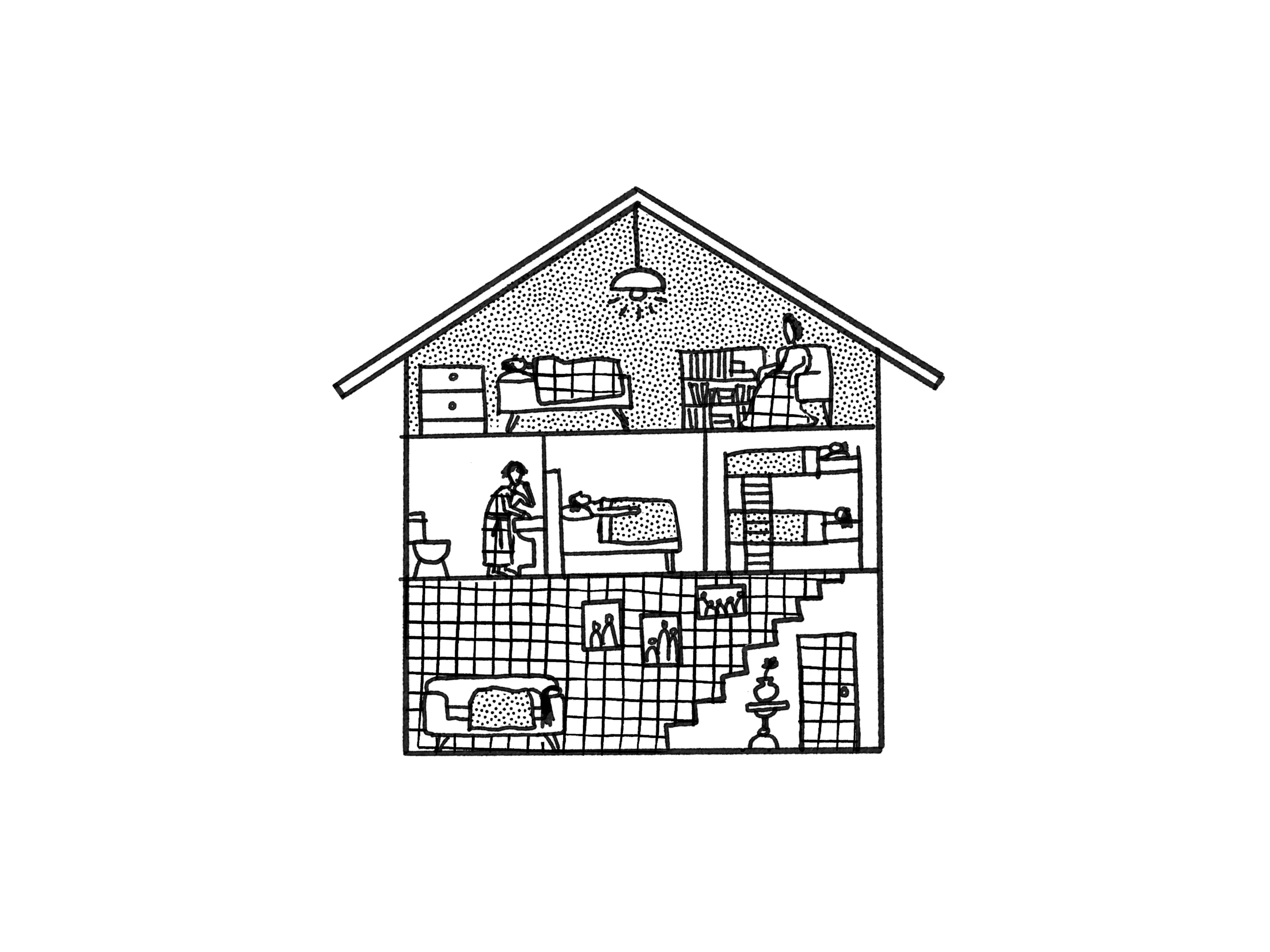Latest
March 12, 2024
Editors’ Note | Friends of Peace
The Editors
Ten thousand protestors assembled in Washington Square Park before heading up Fifth Avenue to 26th Street and looping back down to Union Square. Their signs bore phrases like “NO NATION CAN AFFORD BOTH WAR AND CIVILIZATION” and “WHAT PRICE GLORY?” This event, reported in Nicholson Baker’s Human Smoke, occurred in 1935, well before the Nazis invaded Poland; in 1936, Germany was the third-largest purchaser of American arms. But, sensing the...
March 11, 2024
Great Personal Risk
S.C. Cornell
“Every miscarriage is a work accident,” Silvia Federici wrote in 1974, in the essay “Wages Against Housework.” Federici’s argument is simple. If housework is work — if cooking, cleaning, childbearing, and child-rearing are both tiring for the worker and productive for society — then why shouldn’t it be waged? What, besides a very long and successful campaign to dupe women, could lead them to do so much labor without pay? ...
March 11, 2024
An Unholy Alliance
Gaby Del Valle
To exist is to suffer; to bring another person into this world to suffer alongside you is an act of inexcusable cruelty. So says David Benatar, an anti-natalist philosopher who argues that procreation is inherently immoral. His fringe ideology, debated on digital fora and in graduate school classrooms, has yet to gain much real-world traction. But as ice caps melt and global temperatures rise, a different sort of anti-natalist sentiment...
March 11, 2024
Distress Signals
Karim Kazemi
In early December, I bought a tray of origami paper and a bottle of hypoallergenic zinc shampoo for a teenage girl I do not know personally. I had found my way to her holiday wish list through Transanta, a mutual-support platform that connects anonymous gift givers with transgender youth across the U.S. and Canada. The letters that accompany the wish lists often detail struggles to pay rent, medical bills, and...
March 11, 2024
Prehistoric Arrangements
Dan Brooks
There is a surplus of children in this world; ask any orphan. They will probably frame the issue as a shortage of parents, and they might be onto something. One Thursday afternoon last fall, I escaped to a bar to read a book about hunter-gatherers, and a man my age struck up a conversation about whether, all things considered, we might have been better off under prehistoric arrangements. “No child...
March 11, 2024
Fraud Everywhere
Elisa Gonzalez
On July 18, 2019, I dialed the National Visa Center 53 times. If the queue was full — it often was — the automated system played a short message, then ended the call. If it wasn’t, the system played a short message and placed me on hold. After two and a half hours, the person I eventually reached couldn’t solve my problem. Afterwards, I wept as hard as a despairing...
March 11, 2024
A Crowded Dinner Table
Nawal Arjini
I’m the recipient of a blessing that might sound like a curse. I live with my mother — in fact, I live under her, in a house stacked with my grandfather, my boyfriend, and, as of a year ago, my son. My fear that this arrangement would be constraining lifted entirely when he was born: my mother takes care of him for a good part of most workdays and weekend...
March 11, 2024
Help Each Other Up the Hill
Lydia Kiesling
American economists are arguing about whether the economy is good or bad: if the numbers look good, but the people feel bad, who is correct? Family policies are one place where the numbers are undeniably bad — unaffordable childcare, horrible gun and traffic violence, intensifying mental health crises. But since the birth rate is also bad, it’s bad form to focus on these bummers, from a demographer’s perspective, lest we...
March 11, 2024
How to Freeze Your Eggs
Nancy Ko
Step One: Acknowledge some difficult facts. You are a young woman. Like most everyone else around you, you might want kids — just not right now. Yet it is right now — in your twenties and early thirties — that your eggs are most viable. As a fetus, you had six million of them. By birth, this number diminished to one or two million; by puberty, to four hundred thousand....
March 11, 2024
A Different, Messier World
P.E. Moskowitz
The United States is a lonely country. The pandemic didn’t help, but it wasn’t the cause: the amount of time Americans spend talking and socializing with one another has been declining for at least two decades, about an hour and a half less per week in 2019 than in 2003. We’re having less sex than ever — the percent of 18-to 29-year-olds who reported having had none at all in...











